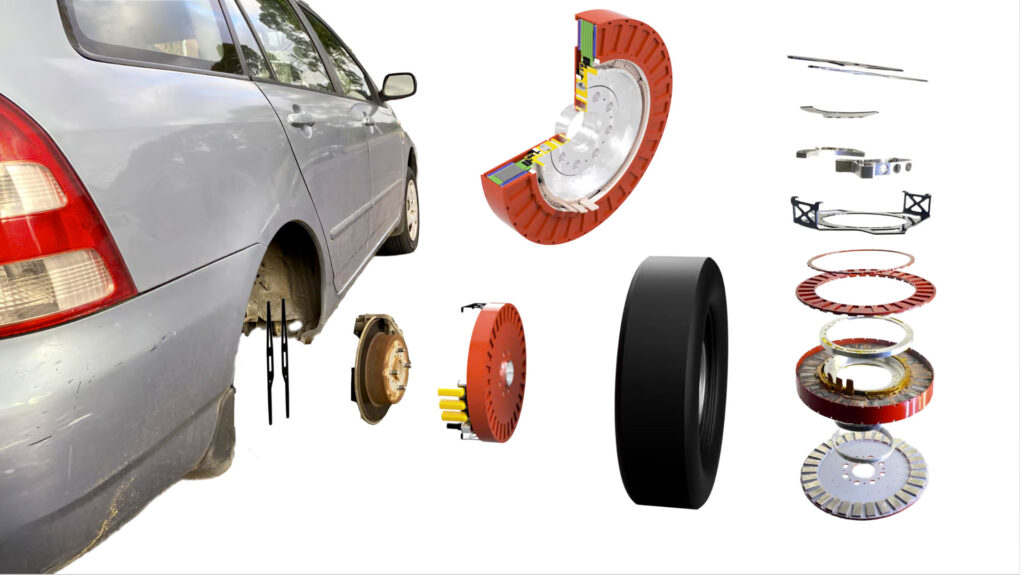A design student in Australia just won a prestigious award for his retrofit kit that could turn combustion cars into hybrids for far less than anything on the market today. He claims that his design allows for a single-day bolt-on installation. Pricing could be as little as $3,200 if REVR (Rapid Electric Vehicle Retrofits) hits all of its targets.
While it’s clear that the automotive industry is making a shift toward electrification there’s still a big problem in terms of reducing carbon emissions. Combustion cars from before and even during the transition to sustainable vehicles aren’t going away anytime soon. REVR would offer owners the chance to electrify their own vehicle for a fraction of what it costs today.
More: Startup’s Tech Converts Diesel Delivery Vans To Electric At The Flick Of A Switch
According to its creator, Alexander Burton of RMIT University, his custom pancake-style axial flux motor is the key. It bolts onto the wheel hub and has a rotating plate that sandwiches between the brake rotor and wheel. Burton says that each motor can produce 50 kW (67 hp) but he doesn’t have a functional prototype just yet.
Nevertheless, he’s thought through a great deal of the technical challenges that lay ahead. The motors bolt onto the rear wheels in the case of his test car, a Toyota Corolla, and the 15kWh “off-the-shelf battery” sits where the spare tire normally would. Evidently, that combination is good for about 100 km (62 miles) of all-electric range at city driving speeds.
The system wouldn’t connect to the combustion engine at all but both could run simultaneously to reduce the fuel burnt by the engine. When in full EV mode, the system would keep the 12-volt battery charged up and power the lights, fan, and so on. Still, Burton needs to finalize parts of the design.
He hasn’t fully determined how the accelerator pedal will work and he needs to finish other electric components like a brake booster, steering booster, and climate control. Despite having some hurdles to tackle, his design just won Australia’s James Dyson (the vacuum cleaner guy) National Award.
With the notoriety gained from that victory, Burton hopes to finish his first prototype, begin a Kickstarter, and have a kit available by the third quarter of 2024. Pricing will likely start out at around $5,400 USD but should the product gain traction, he hopes to reduce that price to just $3,200 USD not long after.








